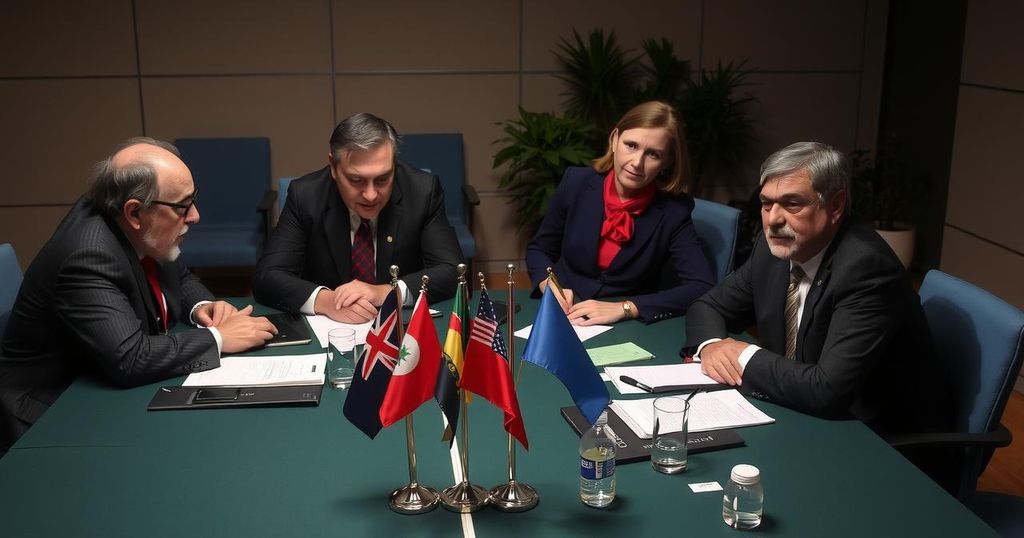Germany Advocates for Continued Sanctions with Urgent Relief for Syrians
German Foreign Minister Annalena Baerbock stated that sanctions against Syrian war crimes suspects should remain in place while also proposing a “smart approach” to provide immediate relief to the Syrian people. An additional 50 million euros in aid was announced for critical needs. The recent overthrow of President Assad has shifted the focus toward rebuilding Syria and addressing humanitarian concerns.
During a recent press conference in Riyadh, German Foreign Minister Annalena Baerbock asserted that sanctions against Syrian officials implicated in war crimes should remain firmly in place. However, she emphasized the necessity for a “smart approach” to provide relief to the beleaguered Syrian population following the overthrow of President Bashar Assad in December. Baerbock’s comments came in the context of a conference focused on the future of Syria, attended by various diplomats from Europe and the Middle East.
Germany has been a key player in imposing sanctions on the Assad regime due to its violent repression of dissent and gross human rights violations that have characterized the civil war, which has lasted nearly 14 years. Baerbock highlighted the dire humanitarian situation in Syria, stating, “Sanctions against Assad’s henchmen who committed serious crimes during the civil war must remain in place. But Germany proposes to take a smart approach to sanctions, providing rapid relief for the Syrian population. Syrians now need a quick dividend from the transition of power.”
In addition to maintaining sanctions, Baerbock announced an injection of 50 million euros in German aid allocated for essential needs, including food, emergency shelters, and medical care. This announcement underscores the ongoing and profound struggles faced by millions of Syrians displaced by the conflict. Furthermore, it aligns with recent actions taken by the United States, which has eased certain restrictions on Syria, allowing specific transactions with the Syrian government.
With the recent ousting of Assad, new authorities in Syria are hopeful for increased international investment to rebuild the nation’s war-torn infrastructure and revitalize its economy. The shift in power could present a critical opportunity for the international community to engage with Syria and address its humanitarian crises while still addressing concerns related to accountability for past atrocities.
The ongoing civil war in Syria has led to immense suffering and widespread destruction since its inception in 2011. The brutal crackdown on dissent by the Assad regime has prompted various countries, including Germany, to impose sanctions on Syrian officials accused of war crimes. With the recent overthrow of President Assad, new governance in Syria seeks to stabilize the country and attract humanitarian support for its population, which has endured significant hardships over the course of the conflict. International relations surrounding Syria are complex, entwined with issues of accountability for past atrocities and the urgent need for humanitarian aid.
In conclusion, Germany’s Foreign Minister Annalena Baerbock has reiterated the importance of sustaining sanctions against responsible Syrian officials while simultaneously advocating for a strategic method to alleviate the suffering of the Syrian populace. With the backdrop of Assad’s recent removal from power, the international community finds itself at a crossroads, tasked with balancing the need for accountability with the urgent requirements of humanitarian assistance in a nation ravaged by years of conflict.
Original Source: apnews.com








Post Comment